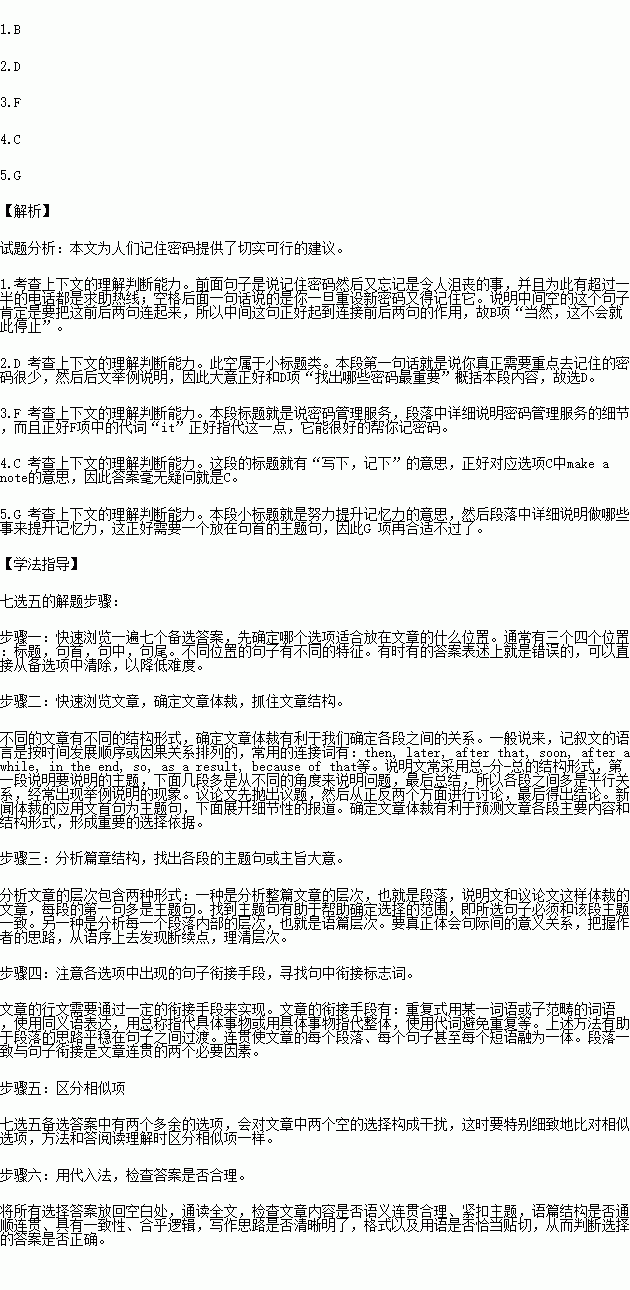题目内容
根据短文内容,从短文后的选项中选出能填入空白处的最佳选项。选项中有两项为多余选项。
How to remember your passwords
Remembering and then forgetting your passwords can be a frustrating business, and one that contributes to more than half of calls made to helplines. __1.___ Once you have reset your password, you’re going to need to remember that one too. Follow our tips on breaking the password-frustration cycle.
___2.___
We often create so many user IDs but there are only a small number of passwords that you really need to remember. It’s important for you to remember your banking and email passwords, but do you really need to worry about your occasional eBay visit? If you can commit(交付) just a few to memory, you can hand the rest over to a password keeper to do the remembering for you.
Sign up for a password keeping service.
__3.___ You just need to encrypt(加密) your data and keep it in a safe server. Many password keepers require you to remember just one master password, which will give you access to the accounts you have chosen.
Write them down
“Just keep them in a safe place, such as a locked box,” says Internet security blogger Bruce Schneider. ___4.___ Thus, it isn’ t entirely discouraged and can be an efficient back-up plan when all else fails.
Work on your memory
__5._ Practicing memory techniques or making certain lifestyle changes, including reducing stress, might just prevent you from having to make that frustrating password phone call ever again.
A. Download a mobile password app.
B. Of course, it doesn’t just stop there.
C. Try to make a note of your passwords.
D. Work out which passwords matter most.
E. Put your money into different accounts.
F. It will remember your passwords for you.
G. Many exercises can help improve your memory.
 小学生10分钟口算测试100分系列答案
小学生10分钟口算测试100分系列答案
